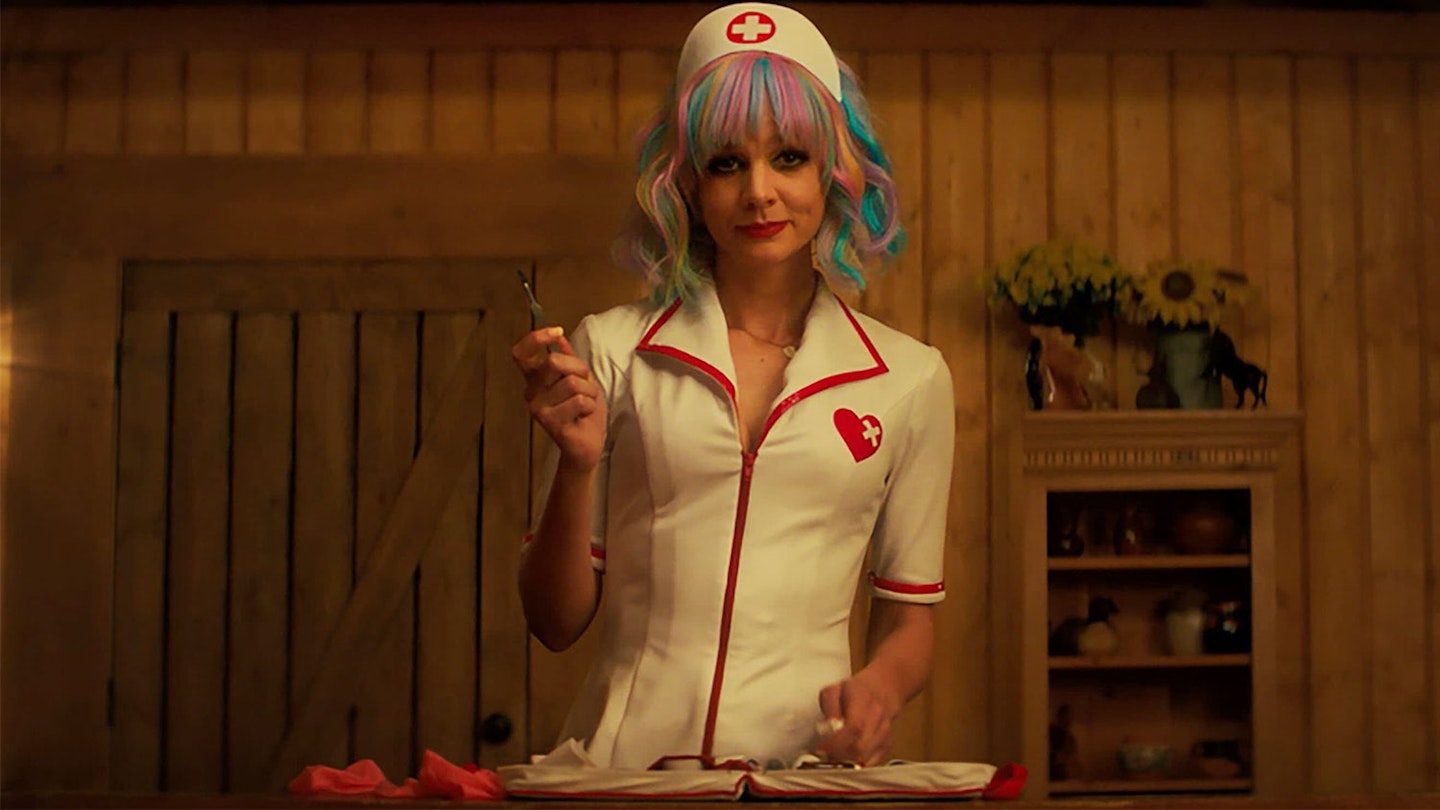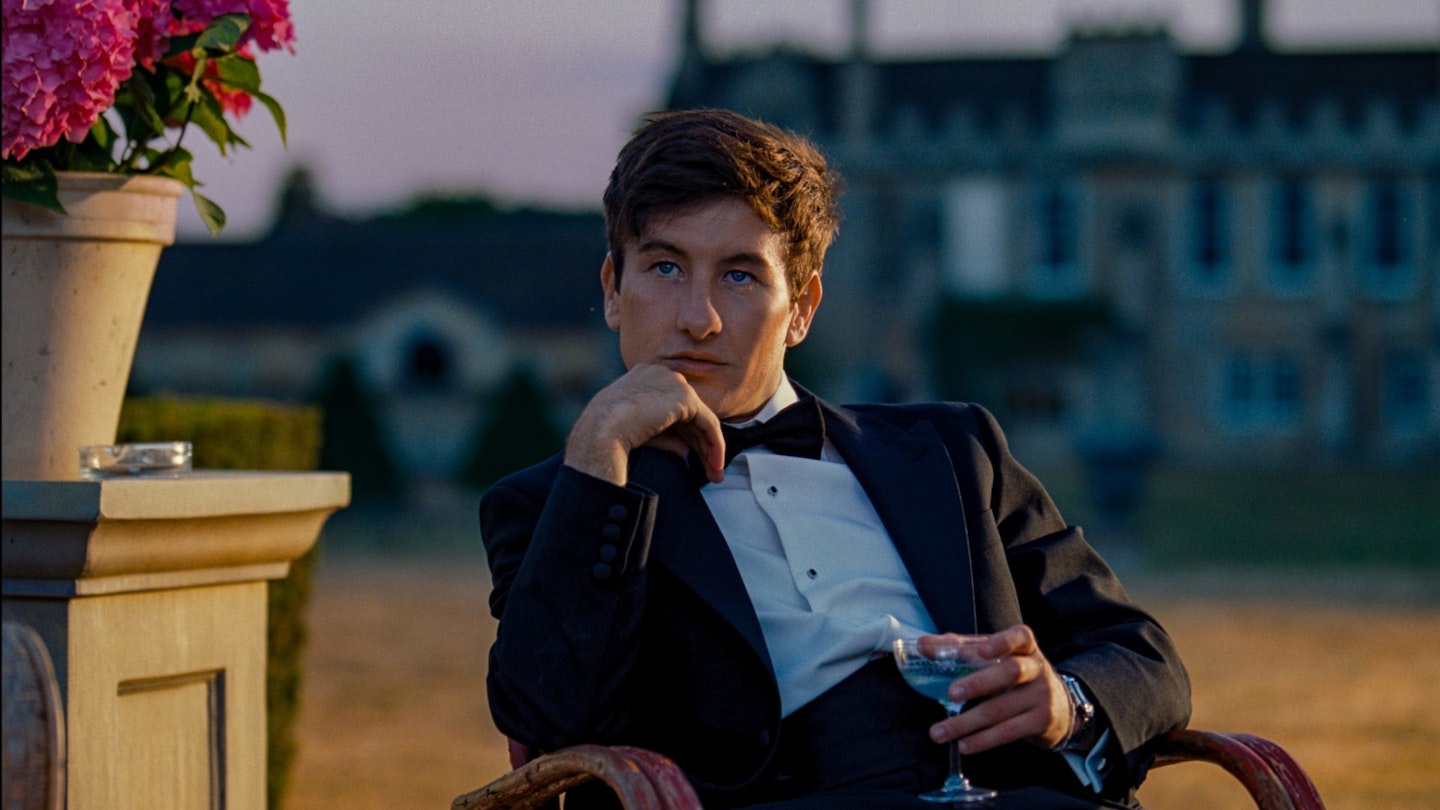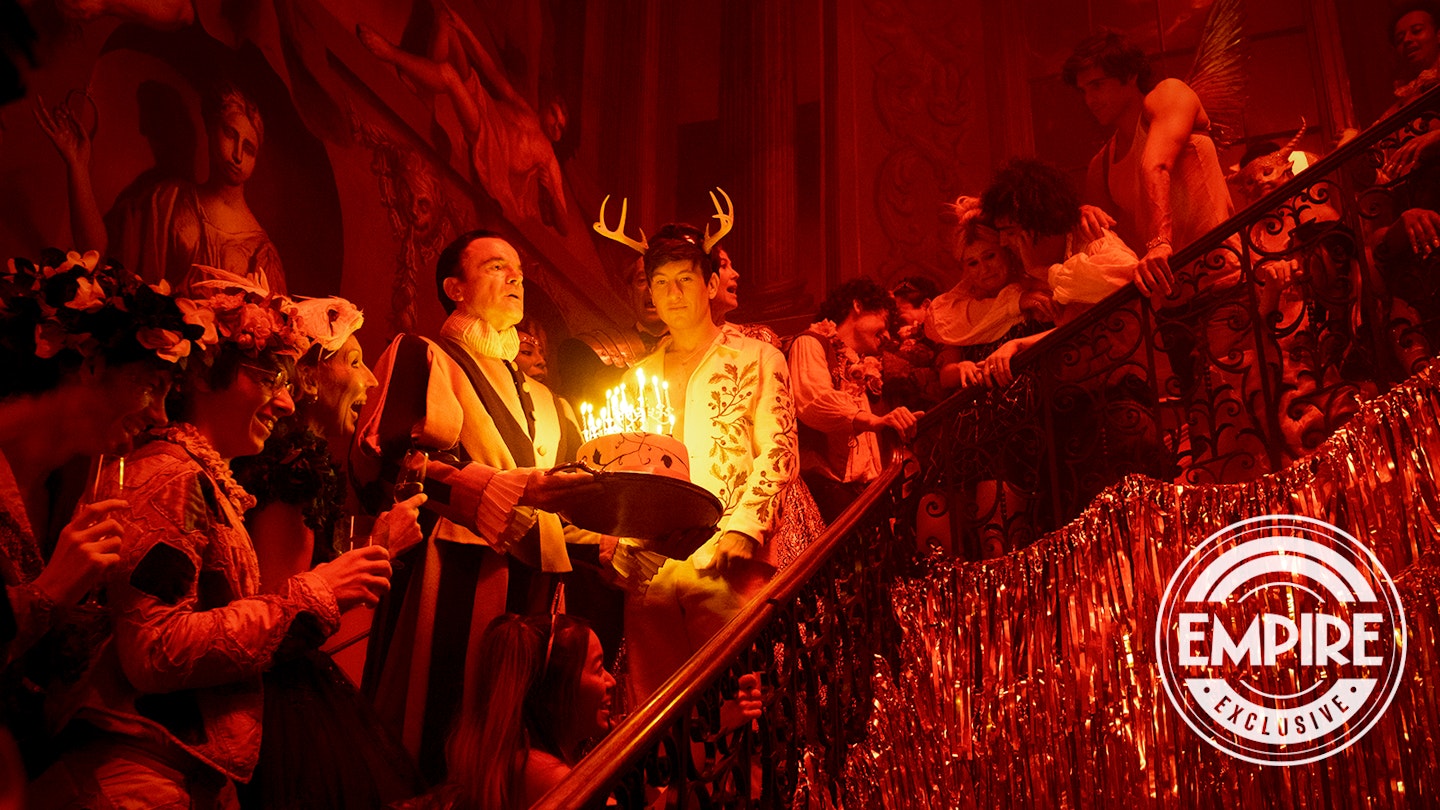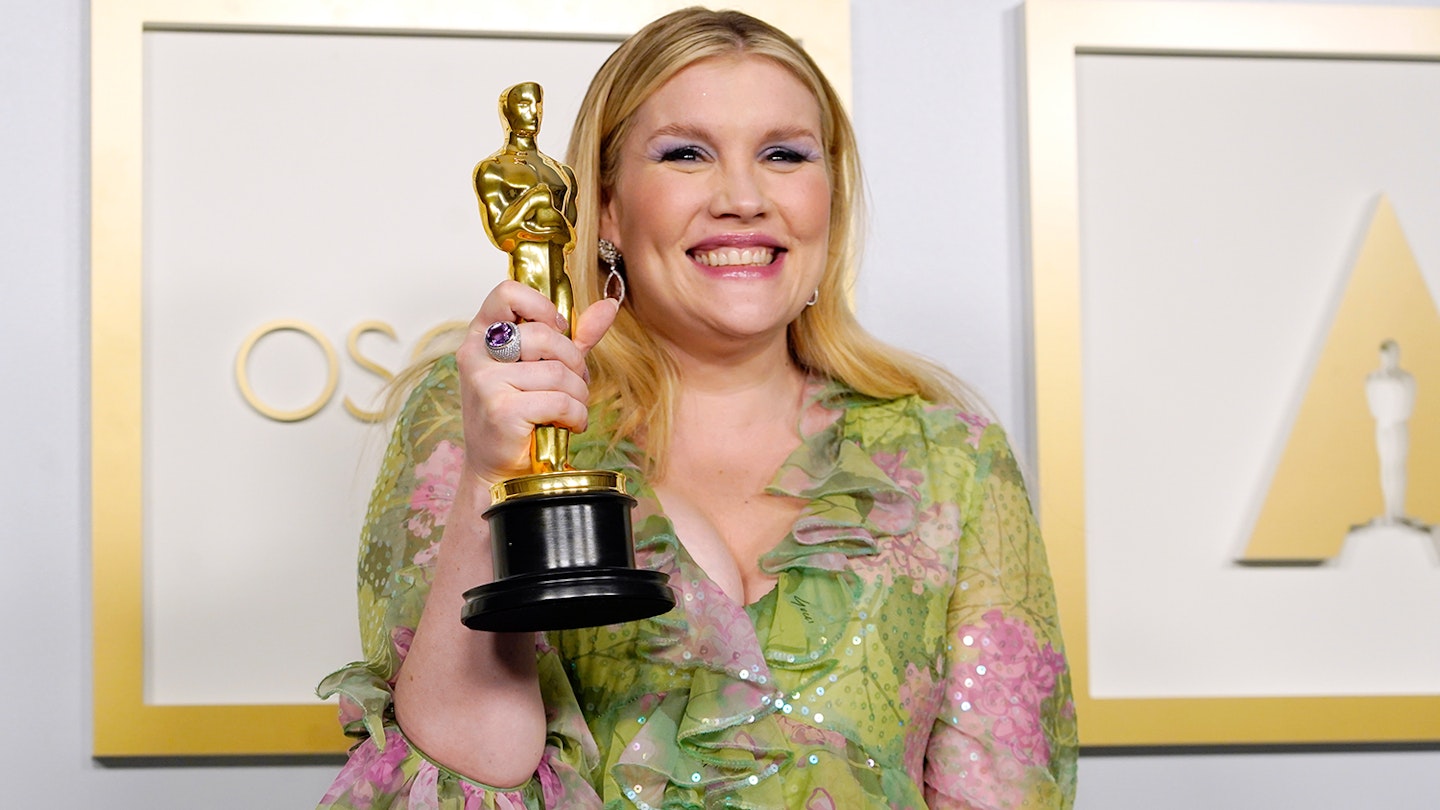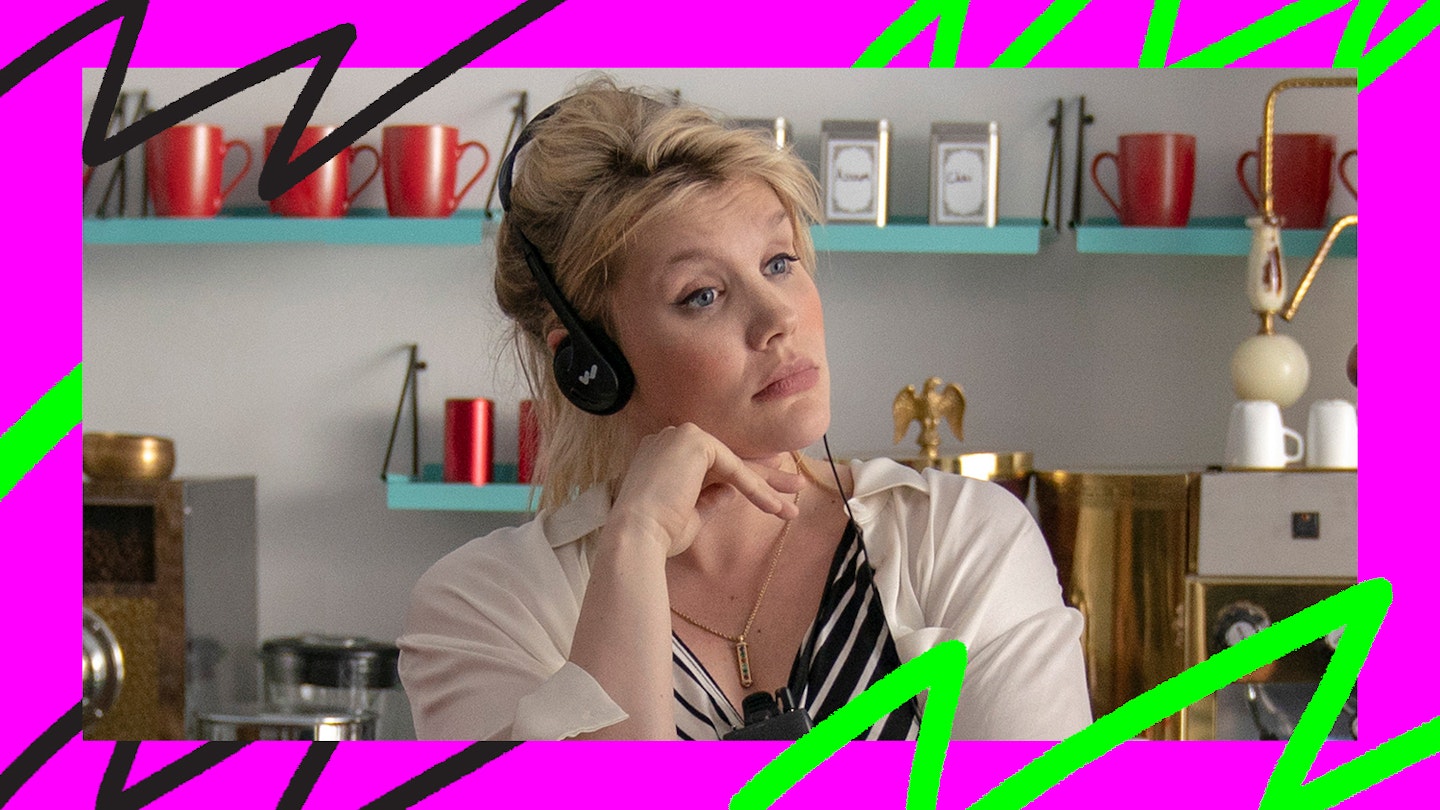Promising Young Woman is a wolf in sheep’s clothing; a revenge drama that looks like a romcom. Don’t be fooled by the heightened girly colours or high-gloss production values — there is molten fury running through the hot-pink veins of Emerald Fennell’s debut feature and, deeper down, grief for women who have lost so much and stand to lose even more. The antagonist here is not so much a single character, as it is broad social attitudes towards sexual violence against women. Fennell’s greatest move is to mount genre storytelling atop sincere emotional undercurrents which build to a crashing wave by the finale.

Cassie, who we meet on the cusp of her 30th birthday, has been suffering from arrested development for the past seven years. Once a promising young woman, she is now a medical school drop-out who works in a coffee shop owned by her friend Gail (Laverne Cox), a warm, sisterly presence who overlooks glitches in Cassie’s customer service, like, say, spitting in a patron’s coffee. Cassie lives a teenage lifestyle at home with her parents, Stanley (Clancy Brown) and Susan (Jennifer Coolidge). But by night she targets a very specific type of sexual predator. He is the ‘nice guy’, the self-styled ‘gentleman’, the man outwardly concerned that women are oppressed by wearing make-up while inwardly sizing up his chances of taking advantage of a wasted lady.
_Promising Young Woman_ is a stock-taking of the fallacies people push forward to avoid listening to the pain of women raped by men.
Her M.O. is faking intoxication in order to draw out this type of opportunist. Every week, she goes to a nightspot and acts too drunk to walk. Every week, a man comes to check if she’s okay, only to take her back to his house. Before he can act out his non-consensual fantasies, Cassie turns the tables. Afterwards she adds his name to a little pink book. It is intimated that she is acting in the name of an absent best friend, Nina. A photograph of the two as children has pride of place on her dresser. Where is Nina now? The nature of Cassie’s night-time habits heavily implies that male sexual violence has something to do with Nina’s absence, so that her backstory, once it emerges, is a sigh of world-weary inevitability. The fact that we know before we know is a damning indictment of the culture that Promising Young Woman skewers with righteous fury and pitch-black humour.
Although Cassie’s nocturnal routine is a motif, executed with relish and detail, it is but one aspect of a shape-shifting narrative. Considerable time is spent sketching the relative normality of the rest of her life, as family scenes lay out the clash between concerned parents and a daughter who has abandoned all conventional pursuits. That is, until her med school peer Ryan (Bo Burnham), now a doctor, walks into her coffee shop... and maybe her heart. For a stretch it seems like love was all she needed. Fennell switches between romcom and revenge fantasy with a fluidity that keeps you guessing as to which will emerge the dominant.
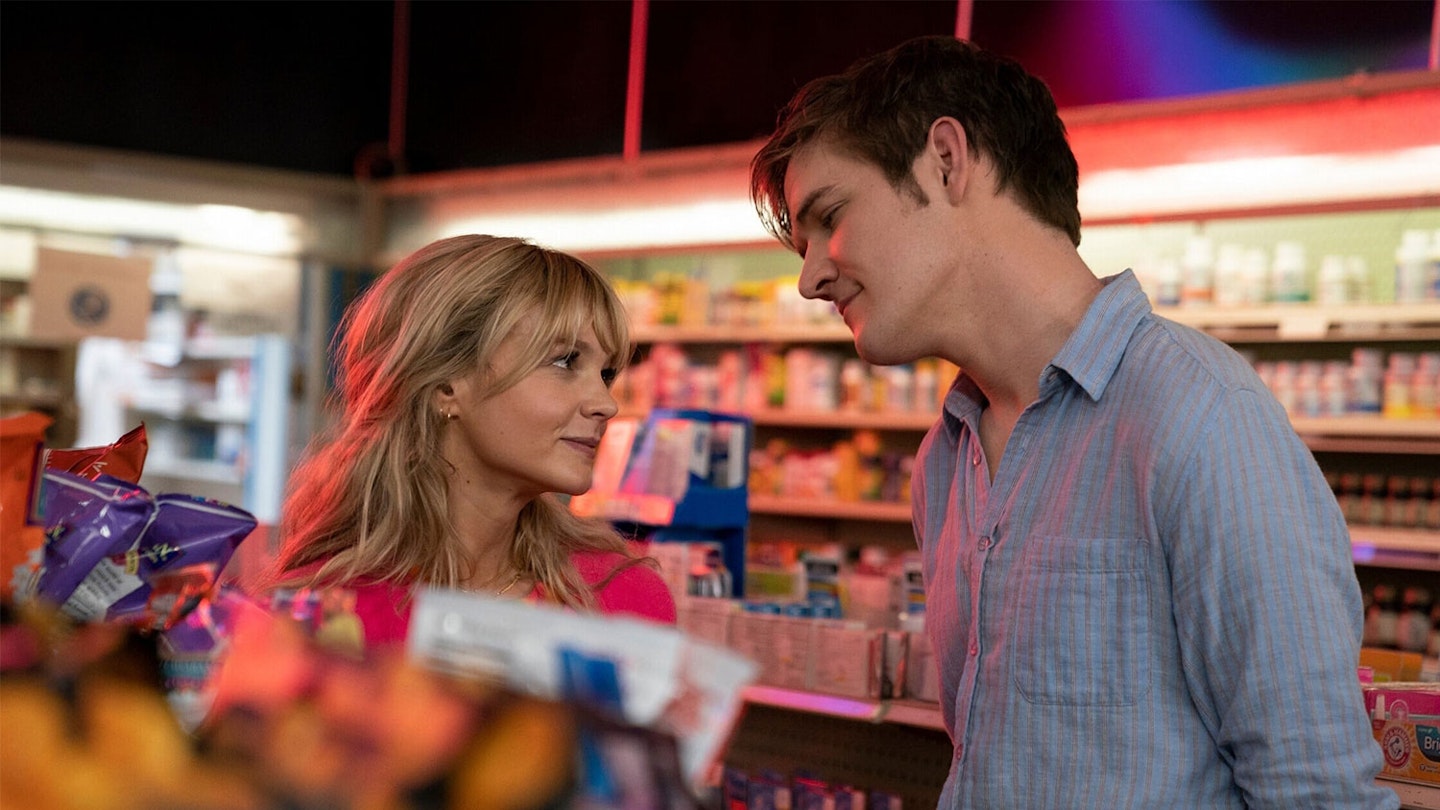
For the revenge portions, she makes a point of including female characters on her hitlist — appropriate in the light of the real-life views aired by the likes of Harvey Weinstein’s trial lawyer, Donna Rotunno. Nonetheless, the big barrels are trained on those good old ‘nice guys’. Fun has been had casting them from a pool of actors who look the part (Adam Brody, Christopher Mintz-Plasse, Chris Lowell), styled as clean-shaven in suits or preppy casuals, the better to underline the chasm between their outer and inner selves. As the film’s true interests emerge from its conceptual trapping, so too does the cover slip from these pictures of Dorian Gray.
What is the nightmare running below the surface of Promising Young Woman? Well, that’s simple: the body count exacted by our rape apologist culture. An irreverent script evidences Fennell’s background as a writer and showrunner on female-assassin drama Killing Eve. Dialogue here is whetted to a fine point, whether it’s Cassie dropping her voice as low as it will go for a pay-off line, or one of the many antagonists expressing rape apology in a vaguely exasperated, this-is-just-common-sense tone of voice. Promising Young Woman is a stock-taking of the fallacies people push forward to avoid listening to the pain of women raped by men.
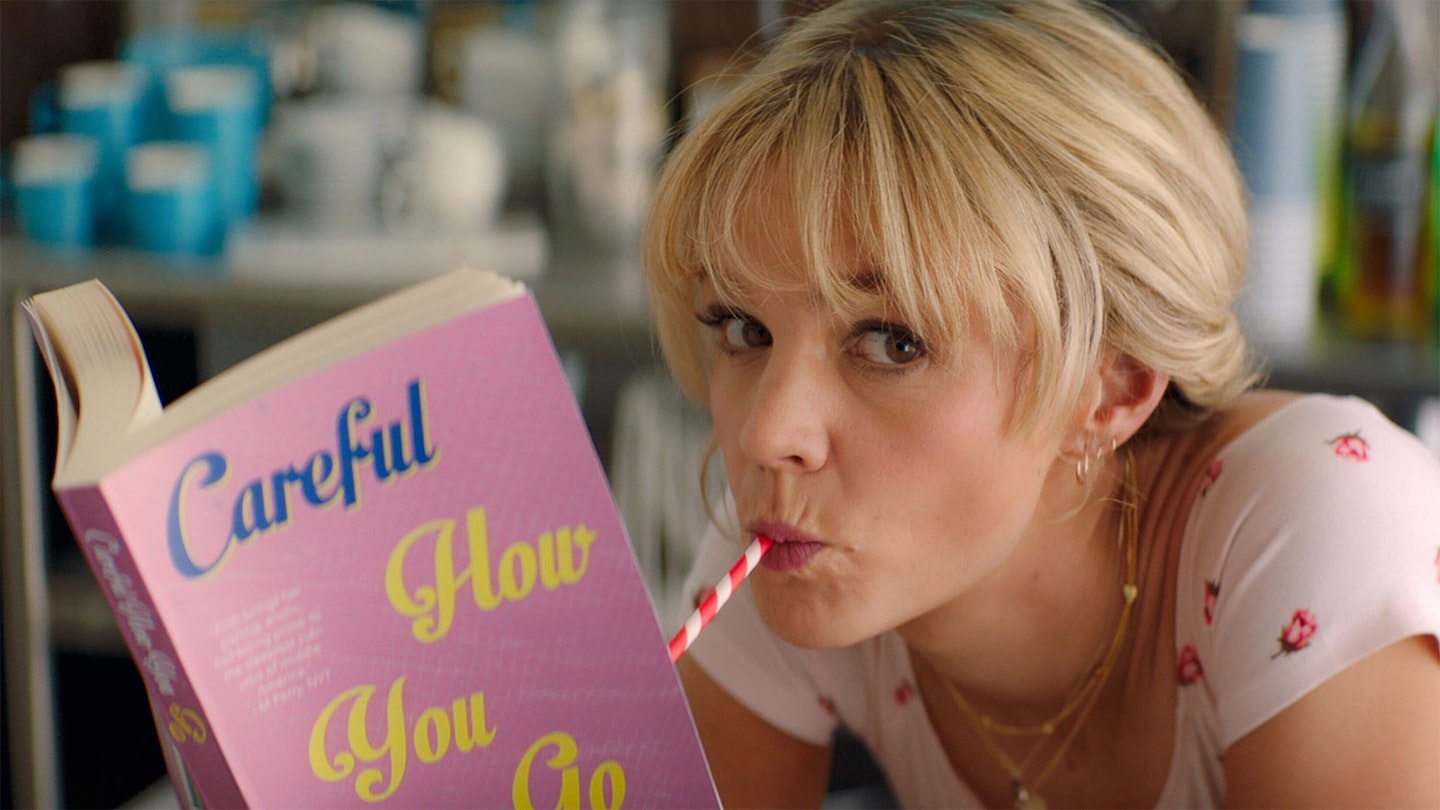
Carey Mulliganis on extraordinary form, harnessing the deadpan humour she unleashed in Inside Llewyn Davis within a self-possessed emotional range that fits the dual genres of the film. She is styled like Brigette Bardot with acres of wavy blonde hair, spidery eyelashes, and pale pink outfits galore. Contrasting with this disarming feminine allure is her performance, which stems from a place of deep cynicism. She is strikingly still, with a stare that scans whoever is talking like a wary animal, yet she can switch on a dime to a mode that makes you realise that underneath the cynicism is a vulnerable human wanting solace and love.
Fennell is brilliant at pulling the rug out, not simply to reveal a bare floor, but a trapdoor into a nightmare
In the stretches where Fennell appears to be playing this romance with a straight bat, we could almost believe in Cassie’s straightforward love destiny, if only the opening mystery of what happened to Nina hadn’t been afforded such haunting power. This tonal breadth plays out in the clash between a sugary pop soundtrack — including Charli XCX, Britney Spears, Billie Eilish and a hilarious montage set to Paris Hilton’s ‘Stars Are Blind’ — versus Anthony B. Willis’ original score: a low, groaning rumble punctuated with juddering drum-bams that never lets you forget the other plotline lurking beneath. Promising Young Woman’s genius lies in the jarring interplay between surface and depths, reflecting its thesis that just because a man presents as nice, it doesn’t mean that he is. Fennell is brilliant at pulling the rug out, not simply to reveal a bare floor, but a trapdoor into a nightmare — in her expert hands, aided by a skilful cast, a warm atmosphere can drop to below freezing for one biting second, leaving you feeling like someone just walked across your grave.
Shifts between dramatic and romcomic modes keep you guessing as to Fennell’s method, which does come into focus after one shockingly long-lasting act of violence sobers up the mood for good. The fun, stylish, enjoyable elements of the film are revealed to be a lavish Trojan horse for a cinematic primal scream. The hot, bubbling desire for justice that consumes so many promising young women runs over to the sweet sound of ‘Angel Of The Morning’, a song now forever stained with grief.
